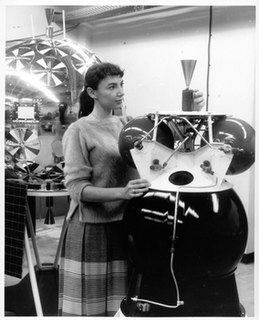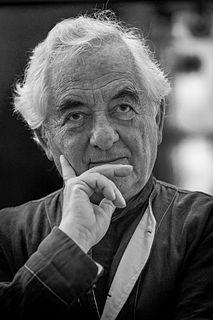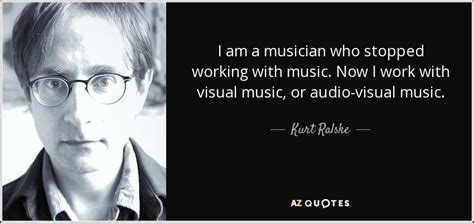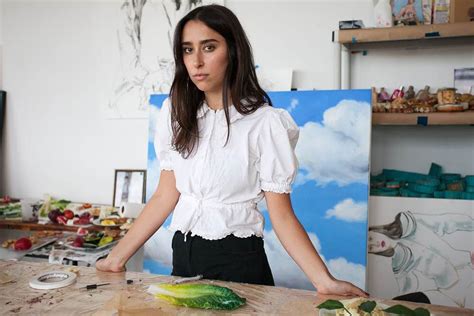A Quote by Jonathon Keats
I don't know whether what I do is art. But making things out in the world and having as many conversations as possible.
Related Quotes
I don't think we're capable of knowledge, but I like to keep an open mind. So if you ask me whether I believe in an afterlife or not, whether I believe in God or not, I can only answer you that all things are possible. And if all things are possible, heaven and hell and the angels are also possible. They're not to be ruled out.
My overall approach toward art is to remain as open as possible in front of the world, to always be curious, not to be afraid to experiment, and have a sense of self-criticism and a general criticism toward the surrounding. Also, trying to make a difference between serious research and pure gag! And making as few compromises as possible toward doing things that might not be accepted by the majority of society, even if this dominant society is the one which is ruling the art world. To keep this fundamental idea, even if it's a bit trivial: to have the desire to transform the world.
In the industrial world we have the problem of having more productive capacity than we know what to do with. That's at the root of the unemployment crisis: we've got so productive at making things, we don't require people to be involved in making the basics of life any more. Or nearly as many people.
I think it's much more interesting to live not knowing than to have answers which might be wrong. I have approximate answers, and possible beliefs, and different degrees of uncertainty about different things, but I am not absolutely sure of anything. There are many things I don't know anything about, such as whether it means anything to ask "Why are we here?" I might think about it a little bit, and if I can't figure it out then I go on to something else. But I don't have to know an answer. I don't feel frightened by not knowing things, by being lost in the mysterious universe without having any purpose - which is the way it really is, as far as I can tell.
Expression is never considered a given, and it is in fact maybe not what's most interesting about making art. Making art, since 1960 or something, is many things: it's a way of doing philosophy, it's a way of opening a dialogue, it's a way of putting a fact or a question out into the world, or a way of drawing people into new relationships, or a way of interrogating history. It's all these other sorts of strategies or techniques or processes that are really interesting and really valuable.
The only way to make a criticism of something is to really participate in it. I'm a completely capitalist person. I participate in commodity culture and the fashion world. High art is a money-making vehicle. We're not making art in a vacuum. We're not shopping in the woods. These are all things that we do within the larger system of capitalism. For me to critique it, I'm also participating in it. That's obvious, I feel. In my work, I participate in the things that I critique. I satirize the things that I love and know well and find problematic.
Language is virtually always pathological; hence the solution is to move as fast and far as possible from language to experience, from linguistic to experimental or psychological philosophy. In order to know that we are not in the linguistic maze, we need to determine, according to Berkeley, whether the things we are talking about exist; hence we need to look for the relevant perceptions. For him, this usually means retiring into himself and trying to imagine whether x exists, having formed the best definition possible of x.

































